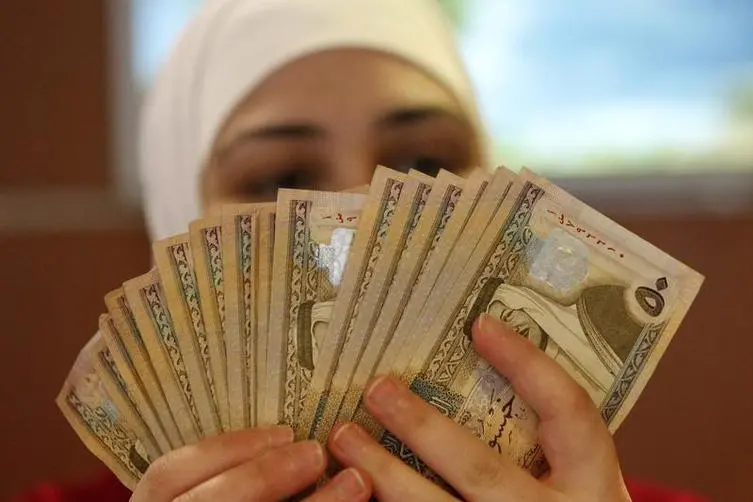PHOTO
AMMAN- Jordan's draft 2021 budget forecasts 9.9 billion dinars ($14 bln) in state expenditure and clears the way for a rebound in growth to 2.5% after the coronavirus pandemic caused the worst contraction in decades, the finance minister said on Monday.
Mohamad Al Ississ told Reuters the cabinet had approved a budget that would accelerate IMF-backed reforms to help the kingdom restore fiscal prudence for a sustained recovery.
He said the budget would continue major fiscal reforms, including continuing an aggressive tax evasion campaign that has netted this year hundreds of millions of dinars for the country's strained state finances.
"Despite the unprecedented challenges, fiscal stability remains our priority," he said.
Al Ississ said the government would not resort to new taxes but a commitment to raise public sector pay that was postponed this year would push state spending, the bulk consumed by salaries and pensions.
Jordan's economy is expected to shrink by 3.% this year, an improvement from an earlier 5.5%, the sharpest contraction in two decades. Before the pandemic struck, the IMF had estimated economic growth of 2%.
The government has given priority to cushioning the pandemic's impact on the poor by expanding a social safety net that has provided support to at least 2.5 million people, more than a third of the country's citizens, Al Ississ said.
It will help ease the pain of the pandemic that has pushed unemployment to a record 23%, Al Ississ said.
Although the kingdom has been more dependent than other regional economies on hard hit sectors such as tourism and remittances, its commitment to a four-year IMF-backed $1.3 bln programme that began this year has helped it maintain strong external financing from major Western donors.
Jordan's commitment to IMF reforms and investor confidence in the country's improved outlook had helped it maintain stable sovereign ratings at a time when other emerging markets were being downgraded, Al Ississ said.
Only last week Moody's affirmed Jordan's B1 credit rating, saying it maintained the stable outlook "owing to expenditure control, improvements in tax compliance and gradually improving growth dynamics".
Standard and Poor’s last September also maintained the country’s B+/B’ ratings.
(Reporting by Suleiman Al-Khalidi; Editing by Alison Williams and Ed Osmond) ((suleiman.al-khalidi@thomsonreuters.com; +96279-5521407;))





















